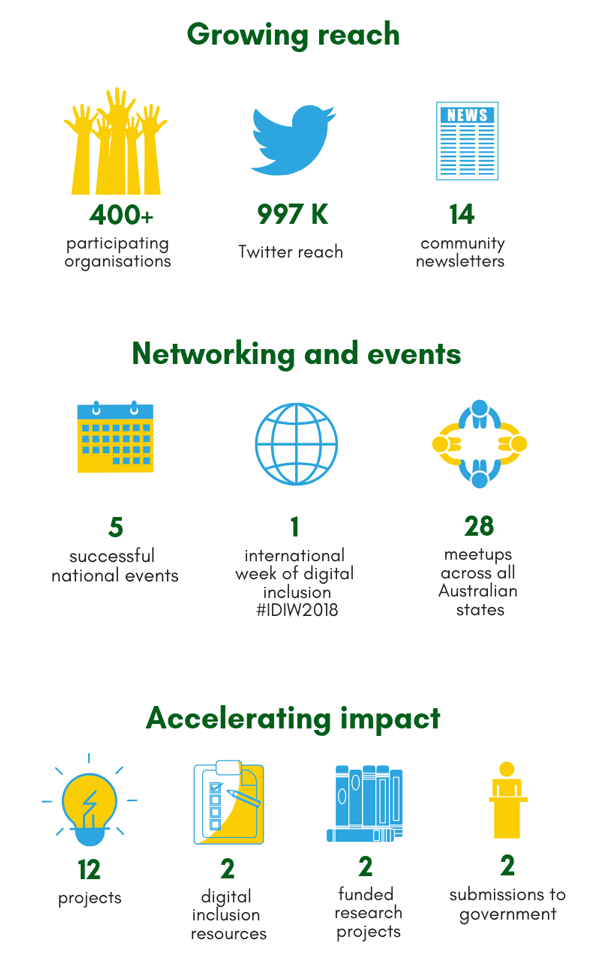A National Digital Inclusion Roadmap
The ADIA has released a position paper – A National Digital Inclusion Roadmap – outlining what should be done to increase digital inclusion in Australia. The ADIA recommends:
- A whole-of-government strategy should be developed – a National Digital Inclusion Roadmap – so businesses, nonprofits and government can work towards the same goal.
- While the Roadmap is being developed, specific initiatives can be initiated:
- Creating a Digital Capabilities Framework to provide a common understanding and goal for what it means to be a digitally capable individual.
- Assessing which internet services affordability measures taken in the immediate response to COVID-19 can be retained going forward. This may include a permanent low cost option for those on low incomes.
- Move towards all federal, state and local government websites being compliant with the latest accessibility standards.
You can access the documents by clicking on the links below:
- A National Digital Inclusion Roadmap
- Accessible Version – A National Digital Inclusion Roadmap
- Accessible Version – Annexure 1: Current Digital Inclusion Frameworks, Strategies and Programs in Australia
- Accessible Version – Annexure 2: Digital Capabilities – International and Domestic Frameworks
For the last six months, we have adjusted our lives to an online world. Now we are realising that when Australia adjusts to COVID-normal, many of the programs and services forced to digitise will not revert to operating as they did before the pandemic. This will only highlight the digital inequity in Australia.
Even before the pandemic, Australians were being left behind because they did not have the affordable access or the skills necessary to participate in a digital world. Now, with coronavirus expediting the digitisation of our daily lives, addressing digital inclusion in Australia must be a priority.
Get Online Week, an annual international campaign to promote digital inclusion, was 19 October to 25 October 2020. Around the country, events were held to help Australians develop the skills they need to thrive in a digital world. The will to tackle digital exclusion in Australia is there – but we need a whole-of-government approach and a Digital Capabilities Framework to ensure the effort is coordinated and directed where it is needed most.

